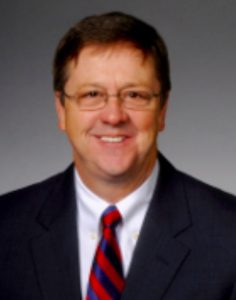State Capitol Week In Review From Senator Larry Teague
By Staff, 05/25/17 3:49 PMLITTLE ROCK – The state Higher Education Coordinating Board began work on a new funding formula for colleges and universities, based on legislation enacted during this years’ regular session.
Act 148 of 2017 directs to board to adopt a funding formula based on productivity measures such as the number of students who complete their degree requirements. The previous formula was based more on enrollment.
The new formula also takes into account factors like affordability. For example, under the new formula colleges and universities will have an incentive to help students graduate on time. When students take five, six or seven years to complete their degree requirements the final cost of their education is much greater and they are likely to have a much heavier loan to pay off.
Also, institutions will be encouraged to help students complete their degree requirements more efficiently. For example, if the requirement for an associate’s degree is 60 hours and a student ends up taking 66 hours in order to satisfy those requirements, it will cost more. Similarly, a student who earns a university degree by completing 120 hours will spend less than a student who takes 126 or 132 hours.
One reason that students take more than the required number of hours is that they change majors in midstream. That happens if they choose a major for which they are not academically prepared, or if they choose a major unadvisedly during their first semester as a freshman and later change their mind.
Two-year colleges would be rewarded in the funding formula for the number of students who transfer to a four-year university with 30 credit hours in core courses.
For years the legislature has worked to make it easier for students to keep the credits they have earned when they transfer from one institution to another.
In 2007 the legislature approved Act 472 requiring colleges and universities to inform students at registration if a course would be transferable to other state-supported colleges and universities.
In 2009 the legislature passed Act 182 creating a set of fully transferable credit hours from two-year colleges to four-year universities. The purpose was to eliminate obstacles to the transfer of credits by requiring four-year universities to accept all hours earned under the new system. The state Higher Education Coordinating Board determined which courses would be fully transferable.
Also in 2009 the legislature approved Act 964 to study the affordability of higher education at Arkansas public colleges and universities.
Several bills enacted in 2007 sought to hold down the sky-rocketing cost of text books.
There are more steps that higher education officials and legislators must take before the new funding formula receives its final approval. Those steps include a public comment period.
Institutions will receive incentives for educating non-traditional older students and students from under-served areas. On the other hand, the new formula is designed to prevent them from lowering academic standards in order to make it easier for students to earn a degree.
According to the formula, completion of students’ educational goals should be the highest priority for each of the state’s 10 public universities and 22 colleges.





One Response to State Capitol Week In Review From Senator Larry Teague